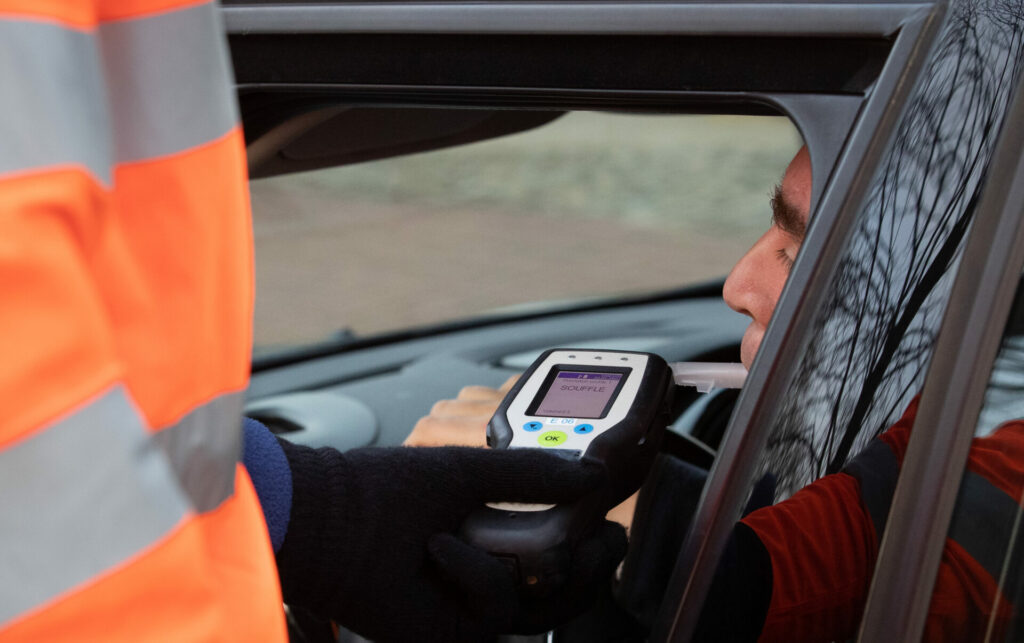Cases of people driving under the influence of substances have increased dramatically in Belgium in recent years, with official figures from the federal police showing that offences have exploded over the last eight years. There were 2382 drug-related offences recorded in the first half of 2014 rising to a staggering 6488 in 2022.
This significant increase is due to two factors, according to Benoît Godart of the VIAS road safety Institute: Availability and widespread use of drugs, and the increase in fast and efficient testing.
"It is mainly cannabis that is widespread as use has become commonplace," he told RTBF. "Inevitably, when a substance becomes commonplace, its use while driving also rises. There are also more controls today thanks to saliva tests; a few years ago, it was absolutely necessary to bring a doctor or go to the emergency room for a blood test. It was quite complicated and tedious."
Driving high is more common
However, with regard to alcohol-related offences, there has been a reduction in cases with 24,361 recorded in the first half of 2014 and 22,779 in 2022. There were significant decreases in 2020 and 2021 which experts attribute to the Covid-19 pandemic and subsequent lockdowns.
Cases of driving under the influence of drugs remained stable during this time before increasing after health restrictions eased.
The effect of driving on drugs can vary depending on the substances used, according to Antoine Boucher, communications officer at Infor Drugs. Cannabis can slow and dull reactions, and inhibit attention, balance, and coordination. Amphetamines, on the other hand, have a stimulating and euphoric effect that will cause the driver to overestimate his abilities, which can lead to greater risk-taking.
Related News
- Riding high: Increasing number of Belgians drive on drugs
- Weekend without alcohol: Drop in drunk drivers but rise in drug driving
Paradoxically, amphetamine use can have positive effects on driving ability such as increased alertness, improved divided attention and verbal interaction. But its after-effects can cause fatigue, decreased concentration, feelings of anxiety and depression. The risk of having a road accident with a driver under the influence of amphetamines is five to thirty times higher compared to a sober driver.
The effects of cocaine are similar but are felt later and last longer than those of amphetamines. The risk of an accident for a driver under the influence of cocaine is two to ten times higher than for a sober driver.
For its part, alcohol has a double effect: "It slows down reflexes and it makes the consumer surer of himself,” Antoine Boucher told RTBF. "It's obviously not the same for everyone, but it's a general trend."
The penalty
In Belgium, the law severely punishes the use of narcotics while driving. The offender must appear before the police court where he risks a fine of €1,600 to €16,000, a driving ban from one month to five years or even a lifetime ban. In offences involving bodily harm, the judge can also impose a prison sentence between one month and two years. In the event of a repeat offence, the same conditions apply. The only difference is that the fine can then be up to €40,000.
In the case of alcohol, the penalty varies according to the blood alcohol level, unlike the use of narcotics. On being caught with an alcohol level of between 0.5 g/l and 0.8 g/l, the driver will face an immediate fine of €179 and a three-hour driving ban.
From 0.8 g/l, the fine is €420, and the driving ban is six hours. The penalty peaks when a person reaches 1.5 g/l. In this case, the driver will be summoned before the police court, which may impose a fine of €1600 to €16,000 and an immediate withdrawal of the driving license for 15 days.
For young drivers who have had their license for less than two years, the penalty is even more severe because they are automatically summoned before the police court and will be sentenced to a forfeiture of the right to drive and will have to retake the theoretical or practical test.

